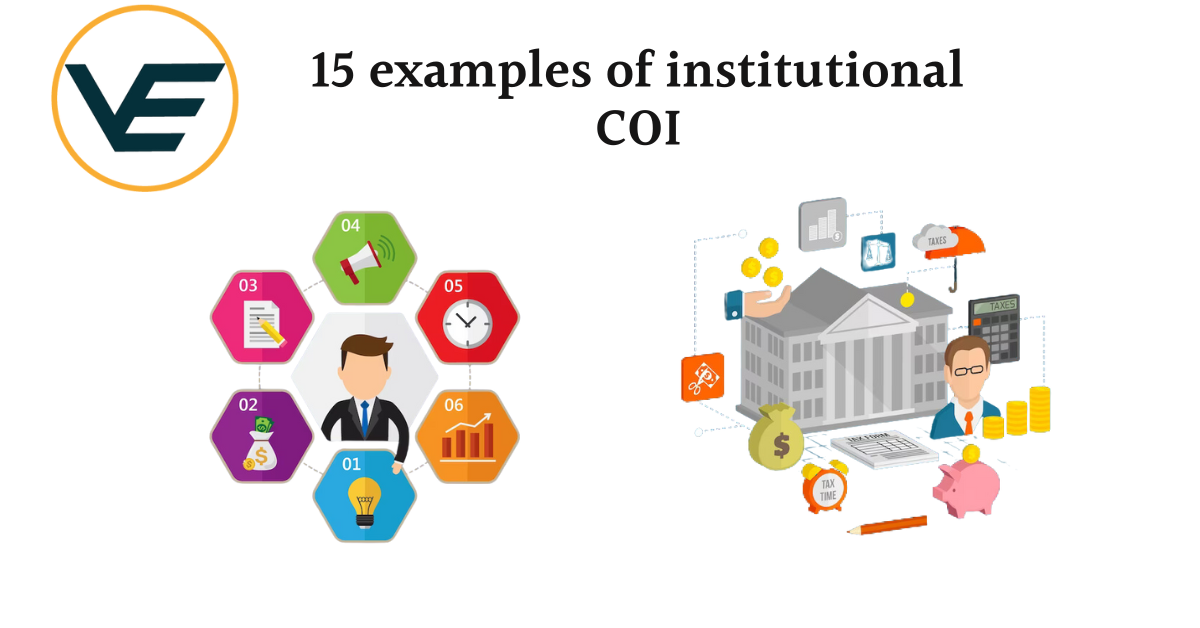Institutional Conflict of Interest (COI) refers to a situation where an institution, such as a university, research organization, government agency, or company, has competing interests that may compromise its objectivity, integrity, or decision-making processes. Unlike individual conflict of interest, which involves conflicts affecting an individual’s personal interests, institutional COI involves conflicts at the organizational level.

Examples of Institutional Conflict of Interest (COI)
15 Examples of Institutional conflict of interest are given below:
- Research Grants: When an institution receives funding from a company or organization that could potentially influence the outcome of the research.
- Pharmaceutical Sponsorship: Pharmaceutical companies funding medical research conducted by institutions that may impact the objectivity of the study results.
- Corporate Sponsorship of Academic Programs: When corporations sponsor academic programs or departments, potentially influencing the curriculum or research focus.
- Industry-Academia Collaborations: Partnerships between academia and industry that may raise concerns about potential biases in research findings.
- Intellectual Property: Institutional ownership of patents or intellectual property rights that could create conflicts in research or commercialization.
- Consulting Arrangements: When faculty or researchers from an institution have consulting agreements with companies that align with their research areas.
- Financial Investments: Institutional financial investments in companies that could create conflicts of interest in research or decision-making.
- Publication Bias: Pressure on researchers to publish positive results that align with the interests of the institution or sponsor.
- Professional Associations and Organizations: When institutions have affiliations with professional associations that may influence their decisions or policies.
- Clinical Trials: Conducting clinical trials on products or services produced by an institution, potentially affecting the objectivity of the results.
- Conflict in Academic Leadership Roles: When academic leaders have affiliations or financial interests that may influence institutional decisions.
- Board Memberships: Institutional board members having affiliations with organizations that could influence decision-making.
- Recruitment of Researchers: Recruiting researchers with ties to specific industries or organizations that may create conflicts of interest.
- Technology Transfer and Licensing: Institutions engaging in technology transfer or licensing agreements that may impact research or decision-making.
- Endowments and Donations: Large financial donations or endowments to institutions that may influence institutional priorities.
Institutional Conflict of Interest can have significant implications on the integrity and credibility of research, decision-making, and institutional actions. Recognizing and managing these conflicts is essential to maintain transparency, objectivity, and public trust in the institution’s activities.

